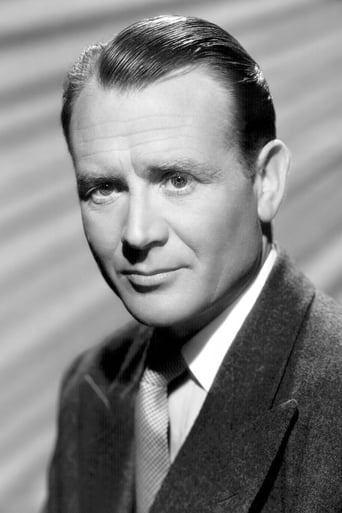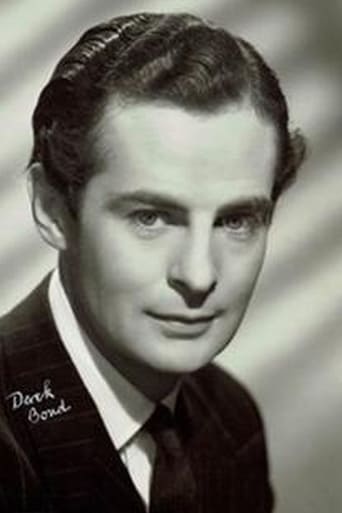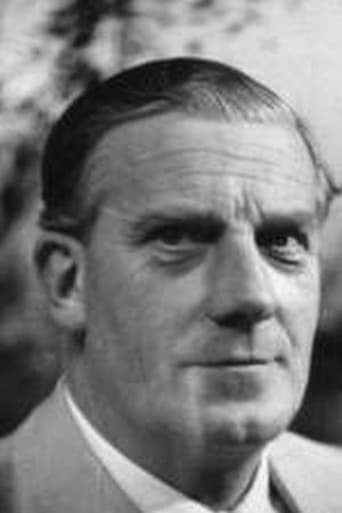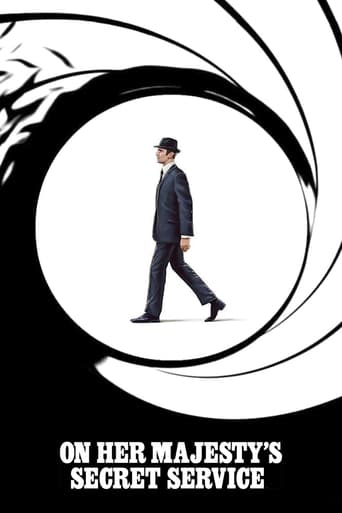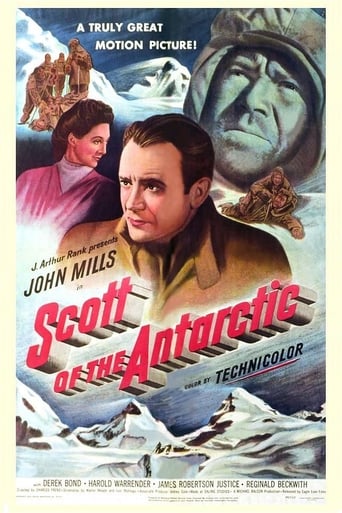
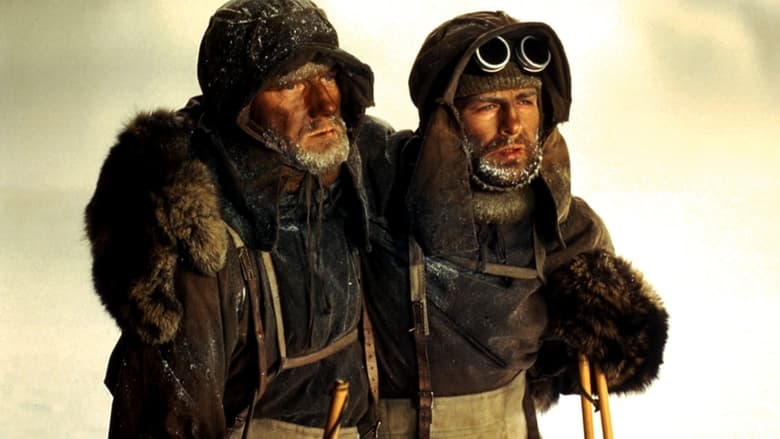
Scott of the Antarctic (1949)
The true story of the British explorer Robert Falcon Scott and his ill-fated expedition to try to be the first man to discover the South Pole - only to find that the murderously cold weather and a rival team of Norwegian explorers conspire against him
Watch Trailer
Cast
Similar titles

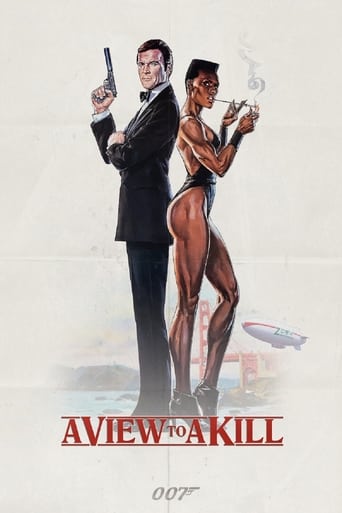

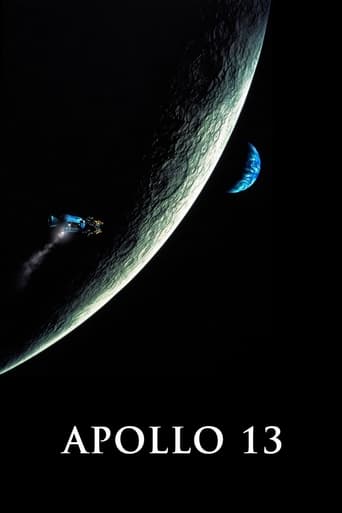
Reviews
Just perfect...
It's funny watching the elements come together in this complicated scam. On one hand, the set-up isn't quite as complex as it seems, but there's an easy sense of fun in every exchange.
Good films always raise compelling questions, whether the format is fiction or documentary fact.
The movie's neither hopeful in contrived ways, nor hopeless in different contrived ways. Somehow it manages to be wonderful
A largely historically accurate of the misfortunes and failures of the Terra Nova Expedition, this is an excellent and absorbing historical drama. It has a very strong script by Ivor Montagu, Walter Meade and Mary Hayley Bell. It hits all of the right notes, which is unsurprising given that it used Captain Robert Falcon Scott's diary as one of its major sources. The film was shot in Pinewood Studios for the most part but its sense of reality is helped significantly by the liberal use of footage shot in Norway and the Swiss Alps featuring glaciers and the like. The only obvious sign that it was filmed in a studio is the fact that no one's breath is ever visible and I did not even notice that until the last 15 minutes as I was enjoying the film so much. I didn't notice it all the first time that I saw it. I think that this is a tribute to the calibre of the writing and the direction of Charles Frend. Or maybe a tribute to me being a little slow on the uptake! There is a very effective sense of foreboding which pervades the second half, particularly the last half an hour. The film stars Mary Hayley Bell's husband John Mills in a wonderful performance as the title character. In some respects, Scott is the typical stiff-upper lip British hero as he is brave, intelligent and unflappable. However, the script does not hesitate to levy criticism, albeit most of it implicit, against him for the mistakes that he made on several fronts. For instance, he decided to use a combination of machinery, ponies and dogs as he had found dogs to be unreliable during the Discovery Expedition almost a decade earlier. He ignored the sound advice of the great Norwegian explorer Fridtjof Nansen to place his faith in dogs, which had been tried and tested in multiple expeditions over the years. Conversely, Scott's rival Roald Amundsen used dogs and was able to beat him to the South Pole before returning safely home to Norway. Scott makes other mistakes such as beginning the expedition with insufficient funds and being ill-prepared for the harshness of the weather conditions. He is depicted as having allowed his ambition to reach the Pole to cloud his judgement in more way than one but he is also depicted as being a good, decent and well-meaning man. In any event, many of the problems that beset the expedition were caused not so much by a lack of professionalism as sheer bad luck. The early part of the film reminds me of the first hour of "A Bridge Too Far" as it is designed to set the stage for the problems experienced by the characters as the story progresses, though Scott is certainly shown in a far more favourable light than General Frederick Browning was in that film.Mills was always a very charismatic actor and this is certainly seen in his performance, which in particularly strong in the last half an hour. He does an excellent job at conveying Scott's bitter disappointment and even heartbreak at seeing the flag that Amundsen left at the Pole. There is really a sense that we are seeing the death of a dream. One of my favourite moments in the film is when he and his four companions pose for the famous photo at the Pole and Scott says, "Great God. This is an awful place." It is a fantastic contrast to the sheer excitement that he had exhibited earlier. It is very hard not to feel the tragedy of the situation, not least because of the understandably miserable expressions on their faces. Unfortunately, however, worse was to come. When it comes to the other actors, Harold Warrender is quite boring as Scott's scientist friend Dr. E. A. "Bill" Wilson but Derek Bond gives one of the best performances in the film as Captain Lawrence "Titus" Oates, the best remembered member of the expedition after Scott himself. Oates starts off as a relatively happy-go-lucky fellow but the stress and the cold wear him down. This is not helped by the fact that his leg becomes frostbitten and gangrenous. The haunting expression on his face when he says that he does not want to wake up in the morning is very moving. The same is true of his noble self-sacrifice with his famous remark, "I'm just going outside. I may be some time." An initially and uncharacteristically beardless James Robertson Justice is great as Petty Officer Edgar "Taffy" Evans, who seemed as strong as an ox but was the first member of the five man party endeavouring to reach the Pole to die. He cut his finger before setting out and he never probably healed as well as suffering severe frostbite to his face and hands. Reginald Beckwith is very good as Henry "Birdie" Bowers, the fifth member of the party, and he provides some nice moments of comic relief in the first half. Speaking of which, one thing that I really loved about the film was the sense of easy camaraderie between all of the expedition members. This served as another very effective contrast, this time to the fate that awaited them. It also served to emphasise that these were real men who lost their lives. The film also features good performances from Kenneth More as Scott's loyal second-in- command Lt. Edward "Teddy" Evans and Diana Churchill as Kathleen Scott. Christopher Lee, in one of his first film roles, and future "Doctor Who" producer Barry Letts make small appearances as Bernard Day and Apsley Cherry-Garrard, two juniors members of the expedition.Overall, this is a stirring tribute to the five men who lost their lives in Antarctica in March 1912.
I wanted to say a few words on this magnificent film.Firstly the acting was first-class. In no film have I seen an actor capture the look of terror that I man feels when he contemplates his death and suppresses terror because of his dignity. It is all in the eyes, and Evan's despairing gaze as he sinks to the snow lingers with the viewer long after the film has ceased to roll. Old as it is, it is a vastly more powerful and shaking film than 'Saving Private Ryan. The make-up and casting are first class. The fact that it was made only a generation after the expedition, gives the film a touch of verisimilitude that truly chills the blood.Many of the comments here reflect a post-imperialist desire to deconstruct the heroes of the Empire of whom Scott was one. His diary apparently, reveals weaknesses of character. But this ignores that a man facing death, communicates to his diary the depths of his soul while he bears a brave face to his companions. Scott's errors can be seen as those of a man taking a gamble, underfunded, knowing the chances but believing that with ordinary luck, he should succeed. The polar winter closes early and at the end he acknowledges his defeat and imminent death. If you want to see a film about men challenging the odds and facing death - this is the film.
Scott Of The Antarctic is directed by Charles Frend and is a superb account of the ill fated Polar trek in 1912 which claimed the lives of four men,most notably the legendary Captain Scott. The film stars John Mills, James Robertson Justice, Derek Bond, Diana Churchill and Kenneth More.Beginning in 1908 Captain R.F Scott(John Mills)tries to put together a polar team and raise funds for a scientific trip to the Antarctic.He is accompanied by his close friend Dr.E.A Wilson(Harold Warrender),Captain L.E.G Oates(Derek Bond)who would gain fame by being the man who stepped out of the tent to try and give his companions a bigger chance at survival,Lt.H.R Bowers(Reginald Beckwith),Taff Evans(James Robertson Justice)and a young Kenneth More as Lt.Teddy Evans.There's also fine support from Diana Churchill as Scott's faithful encouraging wife Kathleen and Anne Firth as Wilson's loving wife Oriana.With breathtaking photography and use of colour by Jack Cardiff and strong performances this is a moving and fairly accurate account of the expedition we will never forget.It shows the harsh weather they faced,the ill preparation and bad luck which dogged the last leg of the trek.Taking us back to a time where men like this were heroes and the whole world was behind their endeavour,wishing them the best of luck.Based on Scott's diaries and letters as well as accounts from the survivors, this gripping film is as close to being there as you can actually get.The cast are superb,especially John playing the charming,driven and determined leader, who's valour and courage moved many after his diaries were made public.This is one you won't regret seeing and it's without a doubt one of the best films Ealing Studios ever produced.
Captain Scott (John Mills) sets out to be the first explorer to reach the South Pole. He recruits his team, eg, Wilson (Harold Warrender), Oates (Derek Bond), Bowers (Reginald Beckwith), Evans (James Robertson Justice), Teddy (Kenneth More) and they set sail. However, a rival Norwegian explorer, Amundsen has the same idea.......The film gets going at a good pace as we are introduced to the characters that will accompany Scott on his journey. Unfortunately, the film loses pace once we land in Antarctica. The scenery is impressive but the film degenerates into lots of walking in the snow interspersed with dull moments together. There is no real emotional involvement with the characters - everyone is slightly stiff and they all look the same with their beards. I thought the characters of Wilson and Bowers came out best as they seemed to have a little more depth. John Mills is wooden and I didn't well up or shed a tear at the outcome. This lack of emotional involvement means that I am in no need to see the film again.I think that more time should have been spent on the tragic parts of the story - it could have been better.
